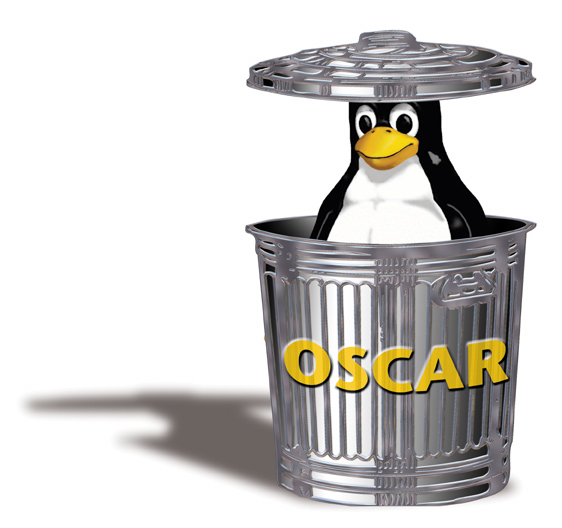Documentations > Developer Documentations > OSCAR infrastructure
OCA: OSCAR Component Architecture
Introduction
The OSCAR toolkit has two primary advantages when compared with other popular cluster management suites: (i) supports a large set of Linux distributions, and (ii) provides an extensible packaging mechanism which eases the integration of new software into the OSCAR suite.
The OSCAR packaging mechanism bundles: application, reasonable default configurations, unit and system tests, and documentation, all of which are installed onto a user’s cluster. This enables a user to build a working cluster by following a sequence of basic steps, and a developer to extend the existing OSCAR suite for customized “spin-off” editions, e.g., HA-OSCAR, SSS-OSCAR and SSI-OSCAR.
The decoupling of applications from the core infrastructure is a crucial asset. However, the current monolithic design of OSCAR’s internal infrastructure hinders the long-term usefulness of the packaging mechanism (and OSCAR as a whole). The core of the OSCAR suite is still very tightly coupled.
For example, when extending OSCAR to support a new Linux distribution, the current design does not isolate distribution specific details. Therefore, in order to extend the supported distribution set, a developer may have to modify large portions of the OSCAR code base. These changes would be better isolated with a more modular approach, with smaller modifications that are easier to manage. Additionally, a modular design helps reduce the effects to the overall system, so the addition or removal of components has limited impact and can be tested more easily.
Therefore, a component-based approach to software development will bolster the adaptability and help with development and maintenance.
Implementation Details
All the frameworks are in the directory lib/OSCAR/OCA, in a specific directory. Each framework has a driver and at least one component. A component is a specific Perl module in the framework directory.
For instance, imagine we have the following system: 2 frameworks, framework1 and framework2; the framework1 has one component called component1; the framework2 has 2 components, respectively called component2-1 and component2-2. Then, we will have the following organization:
lib/OSCAR/OCA/framework1/
lib/OSCAR/OCA/framework1.pm (the driver)
lib/OSCAR/OCA/framework1/component1.pm (a component)
lib/OSCAR/OCA/framework2/
lib/OSCAR/OCA/framework2.pm (the driver)
lib/OSCAR/OCA/framework2/component2-1.pm (a component)
lib/OSCAR/OCA/framework2/component2-2.pm (a component)
Testing/Debug
A driver for OCA is available at [browser:trunk/scripts/OCA-driver.pl] which will output the information collected by the frameworks when executed. For example, if the script is run on Fedora Core 6 x86, you will get the following output:
[root@fc6-x86 scripts]# export OSCAR_HOME=<path_to_oscar_checkout_or_dir>
[root@fc6-x86 scripts]# ./OCA-driver.pl
=============================================================================
== OS_Detect
=============================================================================
--> Dump...
$VAR1 = {
'compat_distro' => 'fc',
'distro' => 'fedora',
'chroot' => '/',
'arch' => 'i386',
'ident' => 'linux-i386-fedora-6',
'os' => 'linux',
'compat_distrover' => '6',
'pkg' => 'rpm',
'distro_version' => '6'
};
--> distro_flavor=()
--> distro_version=(6)
--> arch=(i386)
=============================================================================
== RM_Detect
=============================================================================
--> Dump...
$VAR1 = 1;
